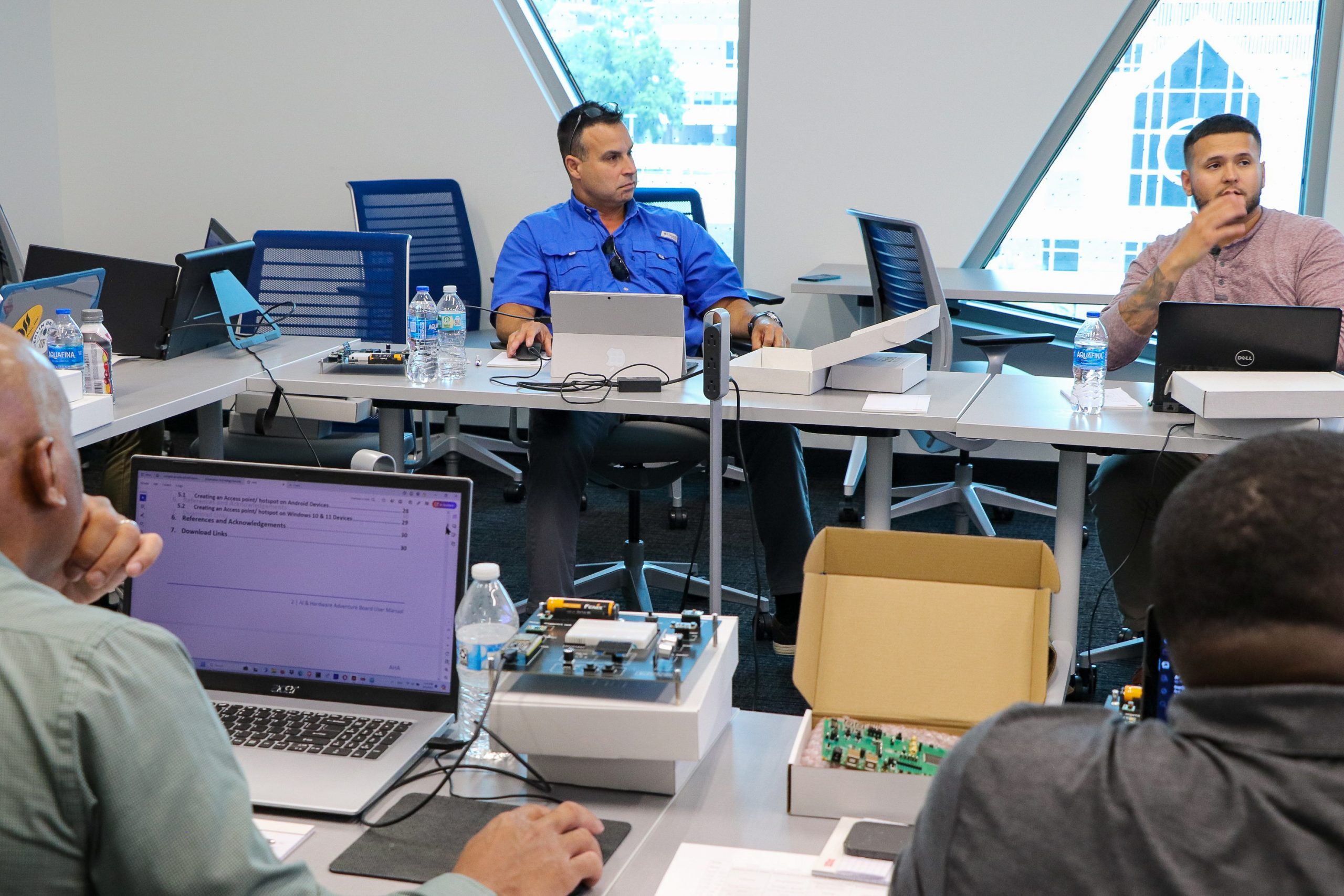UF teaching veterans how to hack
In May, 11 U.S. veterans gathered at the University of Florida to learn how to hack into computer systems.
With the intensity and persistence of a shady cyber-criminal, the Florida veterans learned – through trial and much error – how to invade protected computer networks and become serious cyber-security threats.
What’s more, they were very good at it.
“You cannot learn how to hack without actually hacking. They learned how to hack in way that is safe for them and safe for society,” said Sandip Ray, Ph.D., who led the group of carefully selected military veterans to study hardware security.
Led by UF’s Warren B. Nelms Institute, the three-year project is called Pivots: VETS-HASTE: Veterans SkillBridge through Industry-Based Hardware Security Training and Education; it is funded by $1 million from the National Science Foundation and is led by Ray and Wanli Xing, an assistant professor in the College of Education.
The study teaches veterans in-demand skills in a chaotic cyber-world that is constantly under attack from crafty hackers. This is an intense program that hosted the veterans on campus for a week and then has them working on home studies through the fall with access to UF resources, including Ray.
Next will be three-month internships with businesses anxious to hire additional cybersecurity specialists. After that, the veterans will have the skills, the experience, the resume and the confidence for the workforce, Ray said.
“This is something that has a humongous amount of promise,” Ray said. “It’s not just hardware security. We have to do something for veterans as they transition to civilian life. We need the workforce, and here are well-disciplined people.”
Florida had the second highest veteran population in the country in 2022 (1.3 million), according to the U.S. Census Bureau.
This month, Forbes Advisor ranked UF the country’s best military-friendly online college of 2024. That comes on the heels of U.S. News and World Report’s ranking UF Online as the top Online Bachelor’s Program for veterans for the second year in a row.
Those rankings reflect online classes for enrolled students, particularly service members stationed far away from campus. Programs such as VETS-HASTE are not part of the rankings, but the honors speak to UF’s commitment to educating and training military personnel and veterans.
“Gator Nation takes great pride in supporting our nation’s service members,” UF President Ben Sasse said. “We are dedicated to offering a world-class education that meets our students’ unique needs and equips them for a changing economy.”
Working with Veterans Florida, UF selected from 300 VETS-HASTE applicants.
“It was an extremely hard job to find 11 out of 300.” Ray said. “We really didn’t like that we had to reduce it so much. We are trying to get more funding, so hopefully in the next couple of years we will have a bigger program.”
Andre Yates, an Army veteran from Fort Lauderdale who fixed weapons during two tours in Afghanistan, was thrilled he made the cut.
“When I saw the information on HASTE, I thought, ‘That sounds exactly like what I am trying to find,” he said during a video-taped interview in May.
“I can use my hands and still be current with technology. The goal is to learn, gather experience and keep moving forward in this field. I’m kind of hungry when it comes to this right now,” he said with smile, “so learning is a top priority.”
Ray said the time on campus in May went better than expected, meaning the veterans caught on very quickly and worked hard to keep up with the program’s pace.
“The whole idea was to have a very intensive one-week in-person session,” he said. “The in-person part being so intense, the expectation is that somebody with very little familiarity with the topic will be independent after one week.”
Ray laughed and said he is teaching the veterans to be “bad guys,” like him – meaning in order to thwart bad cyber-criminals, you need to learn the criminal’s tricks of the trade.
“They need to understand how the hardware can be hacked and how to prevent those hackings,” he said. “Hacking is not a science. It is kind of an art. The thing with hacking is you will try, you will fail, but you learn from the failure to do something better.”
VETS-HASTE is funded for three years, although Ray said they are seeking additional funding to grow the program.
Related story: Forbes ranks UF Online No. 1 for military service members
By David Schlenker
Originally published on News from Herbert Wertheim College of Engineering
